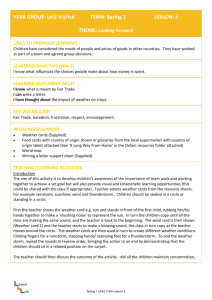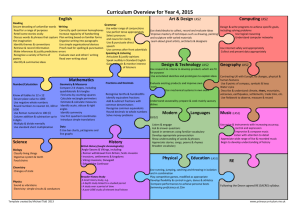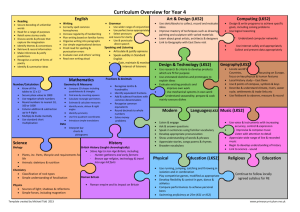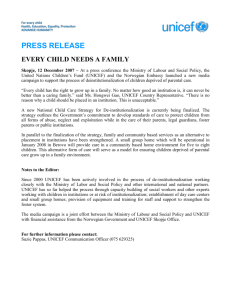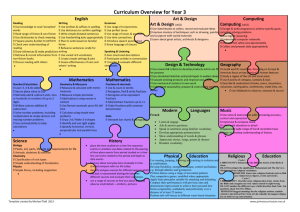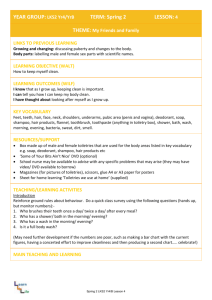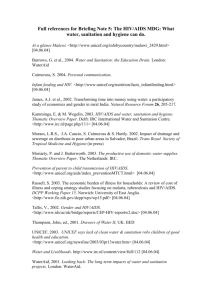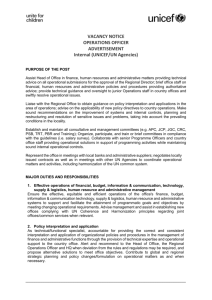006_Spring_1_LKS2_Yr4_Lesson_2
advertisement
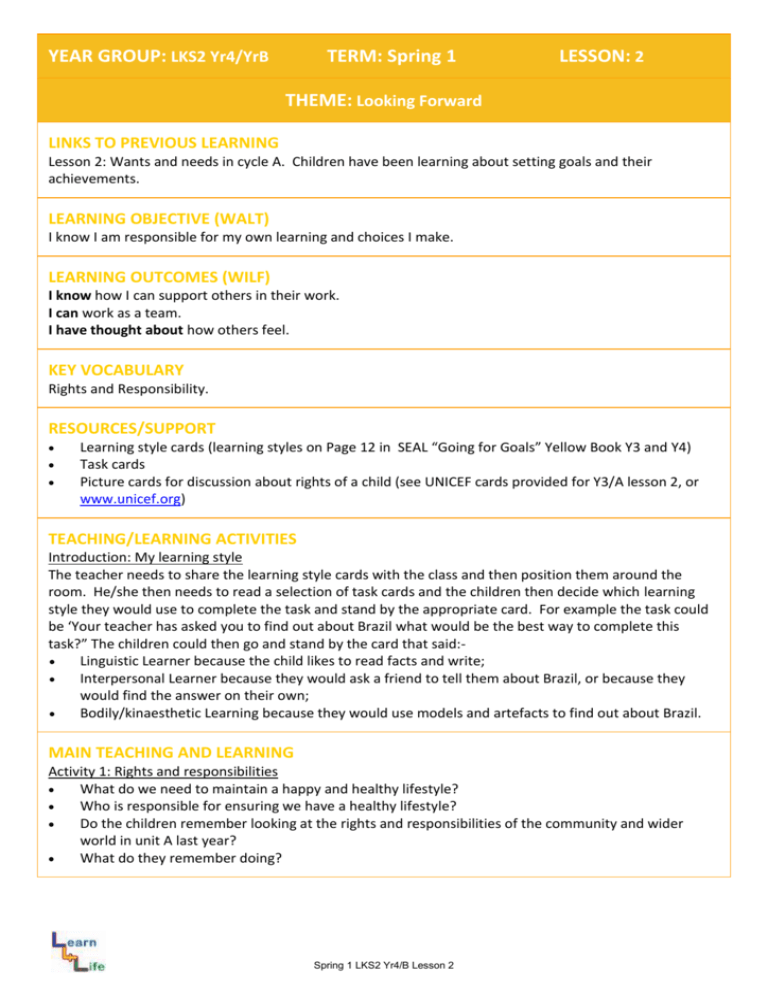
YEAR GROUP: LKS2 Yr4/YrB TERM: Spring 1 LESSON: 2 THEME: Looking Forward LINKS TO PREVIOUS LEARNING Lesson 2: Wants and needs in cycle A. Children have been learning about setting goals and their achievements. LEARNING OBJECTIVE (WALT) I know I am responsible for my own learning and choices I make. LEARNING OUTCOMES (WILF) I know how I can support others in their work. I can work as a team. I have thought about how others feel. KEY VOCABULARY Rights and Responsibility. RESOURCES/SUPPORT Learning style cards (learning styles on Page 12 in SEAL “Going for Goals” Yellow Book Y3 and Y4) Task cards Picture cards for discussion about rights of a child (see UNICEF cards provided for Y3/A lesson 2, or www.unicef.org) TEACHING/LEARNING ACTIVITIES Introduction: My learning style The teacher needs to share the learning style cards with the class and then position them around the room. He/she then needs to read a selection of task cards and the children then decide which learning style they would use to complete the task and stand by the appropriate card. For example the task could be ‘Your teacher has asked you to find out about Brazil what would be the best way to complete this task?” The children could then go and stand by the card that said: Linguistic Learner because the child likes to read facts and write; Interpersonal Learner because they would ask a friend to tell them about Brazil, or because they would find the answer on their own; Bodily/kinaesthetic Learning because they would use models and artefacts to find out about Brazil. MAIN TEACHING AND LEARNING Activity 1: Rights and responsibilities What do we need to maintain a happy and healthy lifestyle? Who is responsible for ensuring we have a healthy lifestyle? Do the children remember looking at the rights and responsibilities of the community and wider world in unit A last year? What do they remember doing? Spring 1 LKS2 Yr4/B Lesson 2 Can they remember raising money for their chosen charity? Why did they do this? To understand that some countries are less fortunate than ourselves but also to develop skills for becoming more enterprising, time needs to be spent revisiting the information they used on Fair Trade and discussing ways that other countries may be less fortunate than ourselves due to poverty, war, government issues, poor sanitation and living conditions, and issues with trade. The teacher needs to choose a country where there is one of the following; a lack of clean water, poor sanitation, insufficient or inadequate housing and where children are expected to work at the same age as the class. Photos or pictures from the internet could be used as a visual aid and starting point for discussion about rights and responsibilities. There are also useful resources on charity websites such as Wateraid, UNICEF or OXFAM which give stories about children living in different parts of the world could also be used as a starting point for discussion about; is it right that some people have no clean water and have to drink water that has been collected from the local stream or river? Can the children give reasons for their opinions? Activity 2 In friendship pairs or small mixed ability groups the children need to make a list of what they think every child in the world should have a right to receive. Discuss what influences the choices people make in different countries about where money is spent. Why are these difficult decisions to make? DIFFERENTIATION The rights, wants and needs cards from Yr 3/A could be used again or a similar set of cards could be used to support children’s development of ideas and start a discussion about rights and responsibilities (see UNICEF and OXFAM resources). Some children will need adult support to record their ideas. All children should be able to express their own opinion. PLENARY Create a class rights and responsibilities for all children list and then share the rights and responsibilities of a child from the World Health Organization or UNICEF website. Did the class have the same rights in their list? KEY QUESTIONS 1. 2. 3. What might happen if children do not have access to clean water? What do you think it would be like to not go to school because you have to work at home instead? Does everyone in our country have a place to live? ASSESSMENT FOR LEARNING How to support others in their group/ team. Ability to listen to other peoples opinions and share their own ideas and opinions. Spring 1 LKS2 Yr4/B Lesson 2 CROSS CURRICULAR LINKS Core skills Writing opportunities Speaking and Listening opportunities Ability to listen and respond to others. Use of ICT Research rights and responsibilities of a child. Mathematical skills Geography Using a world map. HOME LEARNING ACTIVITY BIG talk: Why should all children have the same rights and responsibilities? EVALUATION Spring 1 LKS2 Yr4/B Lesson 2
